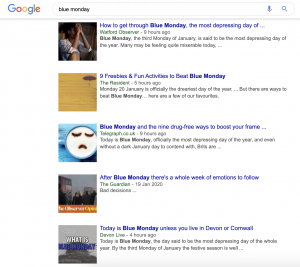THE MARKETING STRATEGIES YOU SHOULD BE USING RIGHT NOW
As the UK is slowly easing out of lockdown, it has never been more important to deploy a number of marketing strategies to help support your business as it begins to resume normalcy. Normality might be a stretch, as life as we know it has changed a lot over the course of the law few months.
Nevertheless, lots of brands have adjusted their procedures accordingly so that they can work and trade in the “new normal” we have found ourselves to be in. Now that provisions have been made, it’s time to start marketing to your pre-existing, and potential new customers – let’s make up for lost time.
The value of marketing should never be understated. Even during UK lockdown where many businesses had to close, there was still a need to communicate and keep your brand alive. The idea was to not let your customers forget about you, and to keep them engaged and excited for when you may be able to resume ‘business as normal’. Now, since non-essential retailers have been able to open, and as the hospitality industry begins to resume next month, your marketing strategies need to change accordingly. No longer is the message: “we are here waiting for your return”, it is “we are back, and this is why you should be spending money with us”.
To get such messages across, you’ll need to use a number of marketing strategies and tactics. One is often not enough. In order to recuperate the losses that lockdown might have brought, you’re going to want to be visible to a large audience of varying demographics and with different interests. As well as remarketing to existing customers, now’s the time to start encouraging new ones in too.
Below, our team have put together some advice on marketing for hospitality, retail and other industries that might have been impacted by the Covid-19 restrictions.
Marketing Strategies For Hospitality, Retail & Other Sectors
As mentioned above, you’re going to want to deploy a number of marketing strategies in order to reach as many (relevant) people as possible. There are a number of ways in which you can do this, and they include…
Social Media Marketing
Social media marketing is great for retargeting, as chances are your followers like your content, or even better – your brand. As such, utilising social media could be the low hanging fruit for your reopening marketing strategies. Use platforms such as Twitter, Facebook, Instagram and LinkedIn to share business updates, inspirational content, hygiene protocols that will give your customers a safe experience, and anything else that you know is a particular hit with your consumers. To help build following, and to get people excited about your brand again, you might even want to run a social media competition or two. The most important thing is to remain active, you want to be popping up time and time again to your audience so that you’re on their mind ahead of 4th of July, where most businesses will be able to resume trading.
Word Of Mouth Marketing
Word of mouth marketing remains to be the best tactic there is. It’s said that as many as 83% of people would trust a reccomendation, if it came from their friends or family. Though this is largely an organic process, there are some things you can do to help it along. Why not encourage your consumers to leave you a good review on social media, or focus on branding so that even after they leave your establishment, they remember you. This could be a branded gift bag, or even something as small as a branded after-dinner mint if you’re a restaurant. When a customer goes home, and their friend or relative asks about you (perhaps being prompted after seeing your brand), you’re going to want them to say good things. Of course, word of mouth marketing is largely encouraged by the business providing an excellent service or product, so this should be a crucial focus as you reopen, or prepare to reopen on the 4th of July. Remember to share positive testimonials on social media too, as they can help reinforce to stakeholders why your brand is awesome. Reading a good review could be the final push a potential consumer, who’s been sitting on the fence, needs to pay you a visit.
Public Relations (PR)
PR is our bread and butter here at Source PR, but it also fundamentally important to your overall marketing strategy. Public Relations is a blanket term which covers your reputation management, this can be built up in lots of ways. Fundamentally though, it’s important to work on your strategy, possibly by utilising a PR agency, to ensure your brand image is a strong one, and one that rises above key competitors in your industry. A big part of PR is media relations, which involves getting your brand into media titles, both online and in print. This kind of exposure for your brand is great as you adjust to trading again, as it can reach a potential audience pool wider than your social media, for example, might be able to get.
PPC & Paid Social
Another way to reach a wider audience, and one that we would recommend if you’re trying to grow your consumer base is PPC and paid social. This involves using the ad-services on Google, as well as Facebook and Instagram. Paid social ads mean that your content will reach eyeballs that might never have interacted with your brand before (or those that have, that are yet to make a conversion), whereas PPC will put you at the top of a Google results page when potential customers are searching for queries that relate to your business.
Search Engine Optimisation (SEO)
Another way to target searchers, and perhaps the most effective, is through Search Engine Optimisation (SEO). When your customers search for queries, such as “DIY stores near me” then if your business name appears near the top of that results page, it’s more likely that they’ll come to visit you. In fact, according to Think With Google, 82% of smartphone users use a search engine when looking for a local business. SEO, the process of improving your website so you rank higher for these terms, is a difficult strategy that takes many years to master, but is a marketing strategy well worth considering. Why? Because you can not only reach a new audience, but also one that’s geo-targeted. Plus, the number of searchers is huge. According to Hubspot, Google processes around 70,000 searches every second.
Which marketing strategies will you be deploying as we move out of lockdown? If you need assistance in social media, PR, PPC, Paid Social, SEO, Influencer Marketing or any other means of communication, then why not send us a message and see how we can support your business?







